SLLSEX4B August 2019 – June 2022 TLIN1028-Q1
PRODUCTION DATA
- 1 Features
- 2 Applications
- 3 Description
- 4 Revision History
- 5 Description (continued)
- 6 Pin Configuration and Functions
- 7 Specifications
- 8 Parameter Measurement Information
-
9 Detailed Description
- 9.1 Overview
- 9.2 Functional Block Diagram
- 9.3 Feature Description
- 9.4 Device Functional Modes
- 10Application and Implementation
- 11Power Supply Recommendations
- 12Layout
- 13Device and Documentation Support
- 14Mechanical, Packaging, and Orderable Information
8.1 Test Circuit: Diagrams and Waveforms
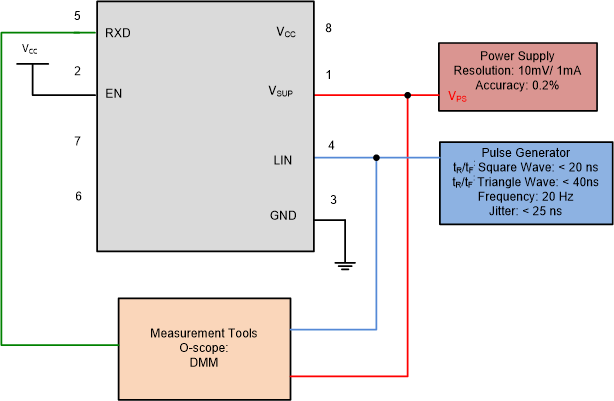 Figure 8-1 Test System: Operating Voltage Range with RX and TX Access
Figure 8-1 Test System: Operating Voltage Range with RX and TX Access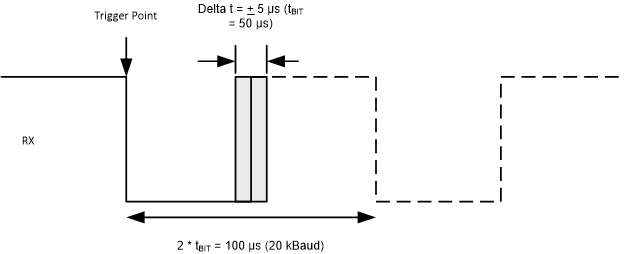 Figure 8-2 RX Response: Operating Voltage Range
Figure 8-2 RX Response: Operating Voltage Range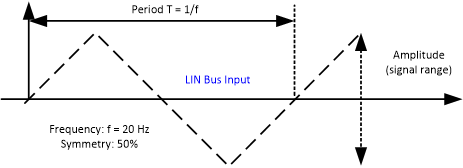 Figure 8-3 LIN Bus Input Signal
Figure 8-3 LIN Bus Input Signal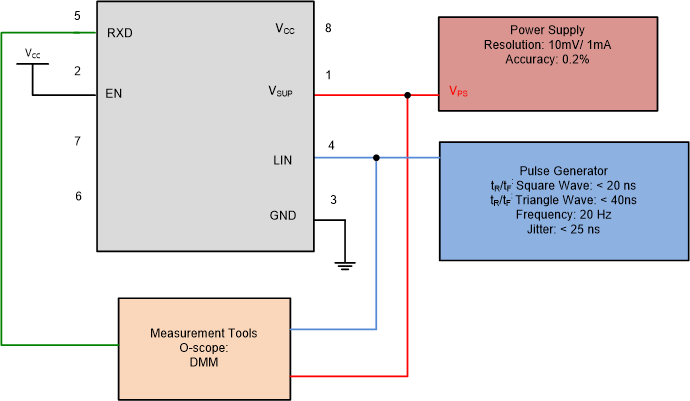 Figure 8-4 LIN Receiver Test with RX access
Figure 8-4 LIN Receiver Test with RX access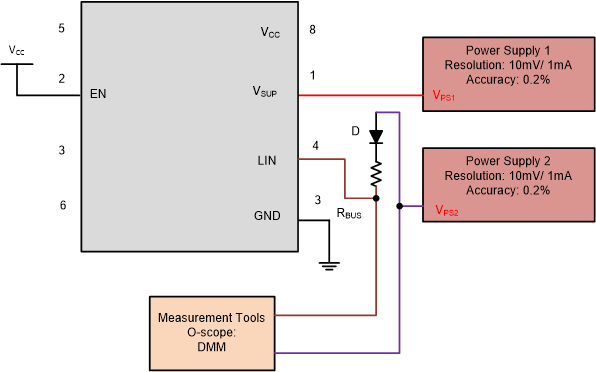 Figure 8-5 VSUP_NON_OP Test Circuit
Figure 8-5 VSUP_NON_OP Test Circuit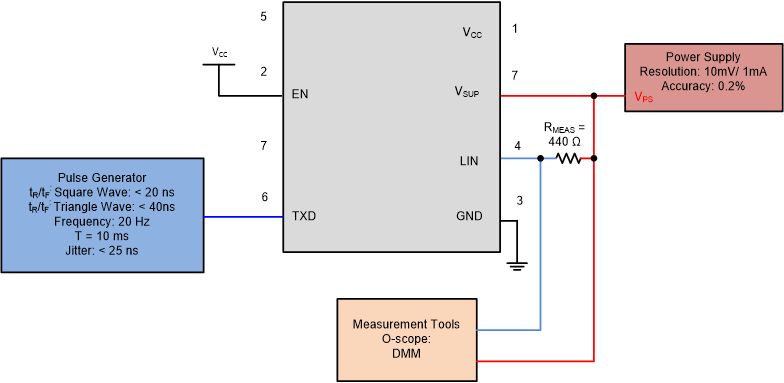 Figure 8-6 Test Circuit for IBUS_LIM at Dominant State (Driver on)
Figure 8-6 Test Circuit for IBUS_LIM at Dominant State (Driver on)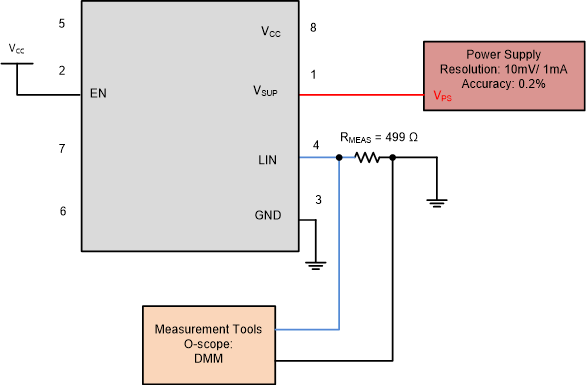 Figure 8-7 Test Circuit for IBUS_PAS_dom; TXD = Recessive State VBUS = 0 V
Figure 8-7 Test Circuit for IBUS_PAS_dom; TXD = Recessive State VBUS = 0 V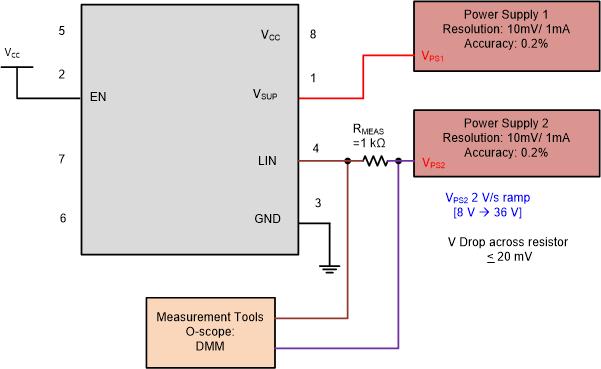 Figure 8-8 Test Circuit for IBUS_PAS_rec
Figure 8-8 Test Circuit for IBUS_PAS_rec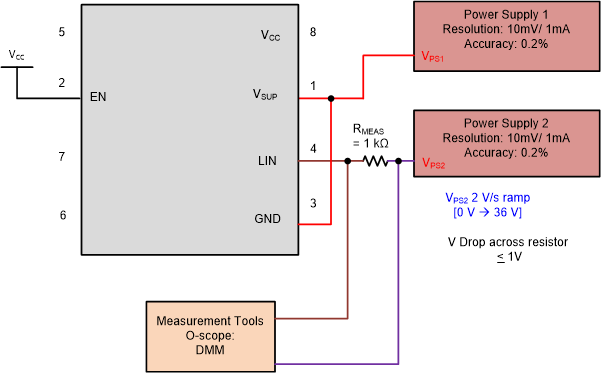 Figure 8-9 Test Circuit for IBUS_NO_GND Loss of GND
Figure 8-9 Test Circuit for IBUS_NO_GND Loss of GND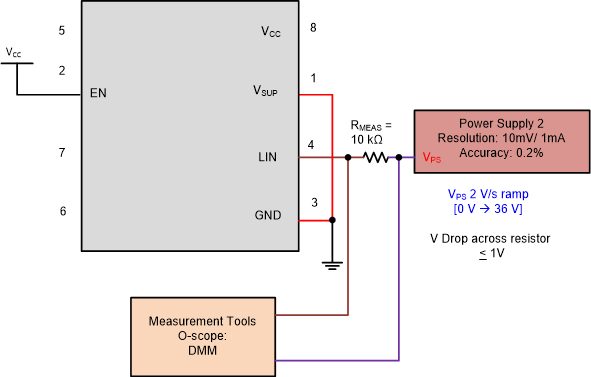 Figure 8-10 Test Circuit for IBUS_NO_BAT Loss of Battery
Figure 8-10 Test Circuit for IBUS_NO_BAT Loss of Battery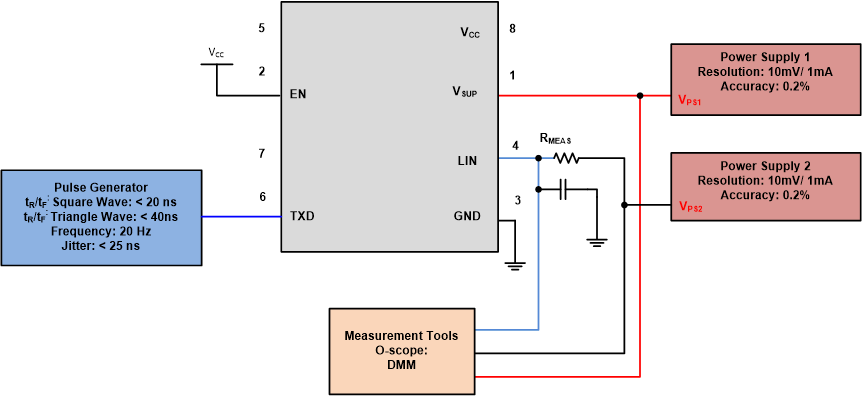 Figure 8-11 Test Circuit Slope Control and Duty Cycle
Figure 8-11 Test Circuit Slope Control and Duty Cycle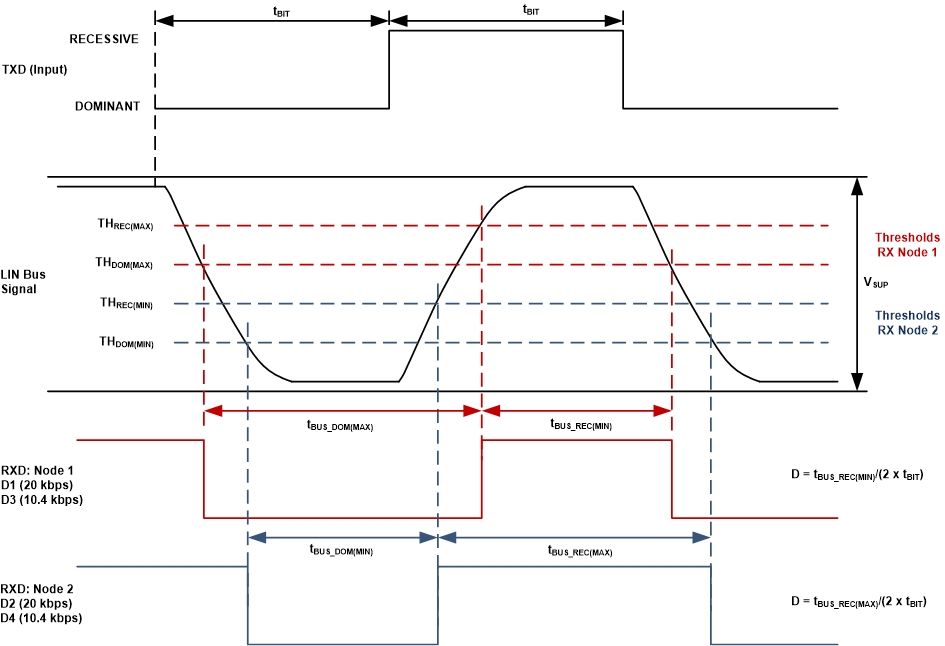 Figure 8-12 Definition of Bus Timing
Figure 8-12 Definition of Bus Timing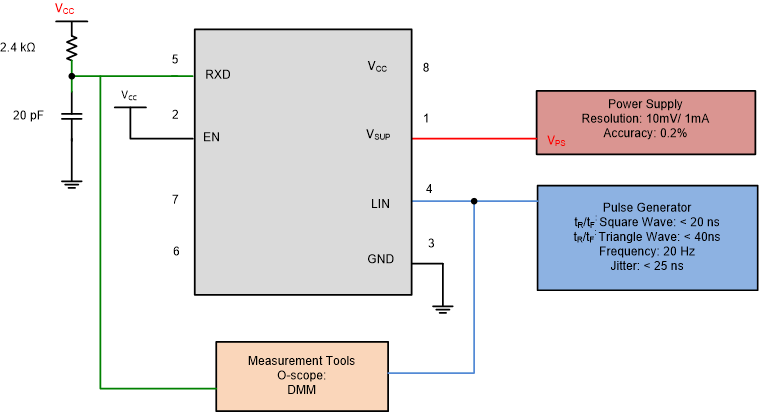 Figure 8-13 Propagation Delay Test Circuit
Figure 8-13 Propagation Delay Test Circuit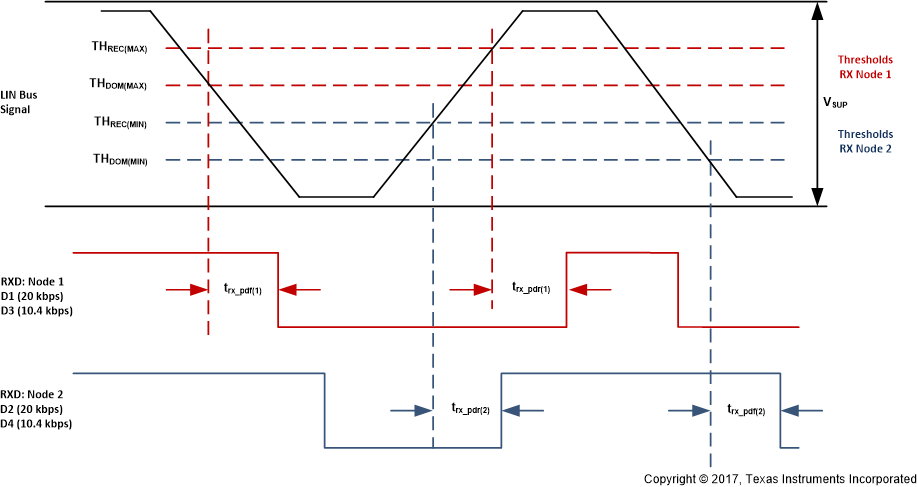 Figure 8-14 Propagation Delay
Figure 8-14 Propagation Delay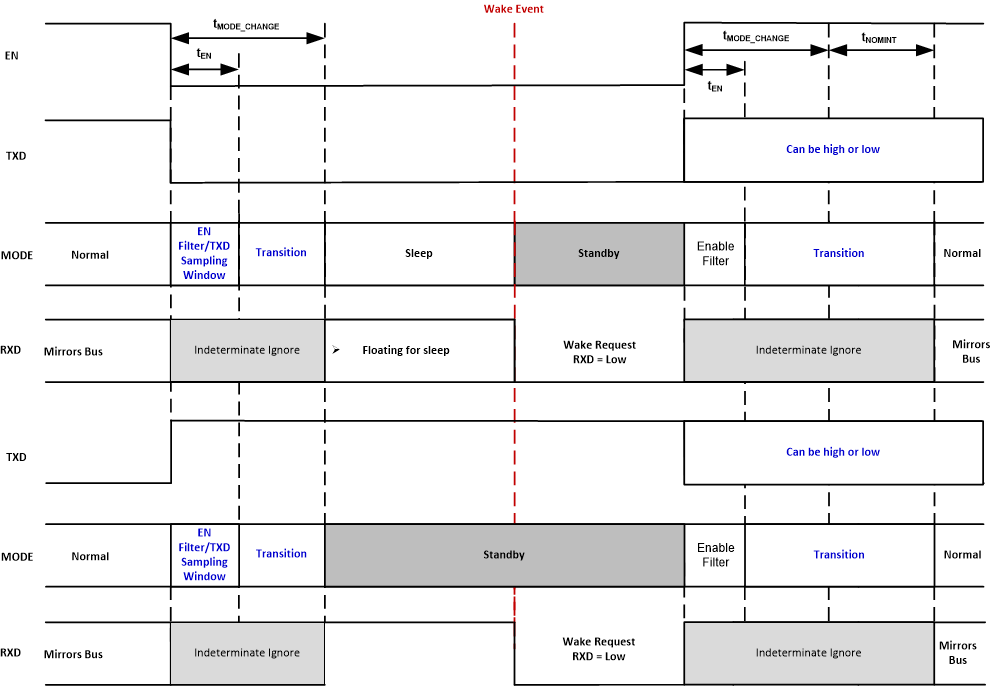 Figure 8-15 Mode Transitions
Figure 8-15 Mode Transitions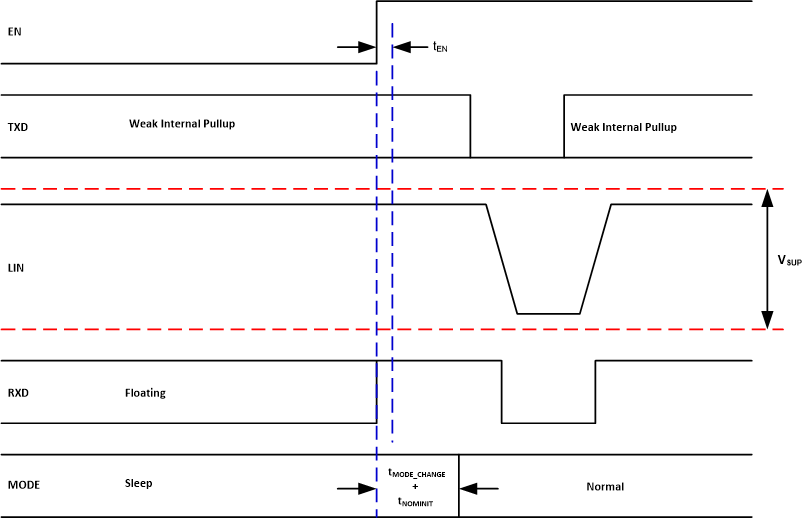 Figure 8-16 Wakeup Through EN
Figure 8-16 Wakeup Through EN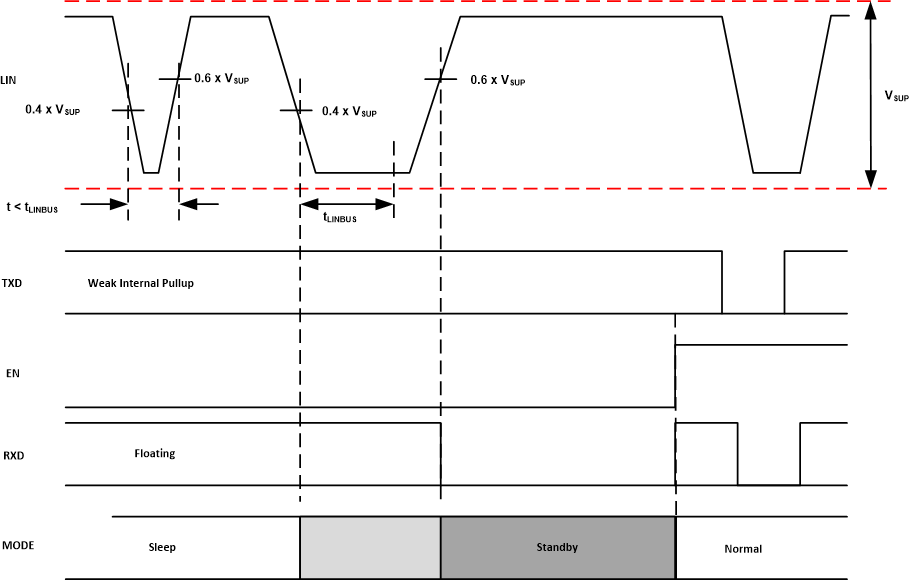 Figure 8-17 Wakeup through LIN
Figure 8-17 Wakeup through LIN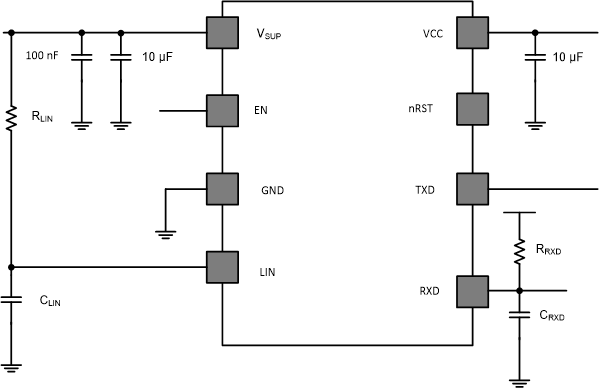 Figure 8-18 Test Circuit for AC Characteristics
Figure 8-18 Test Circuit for AC Characteristics